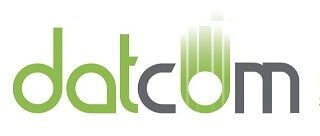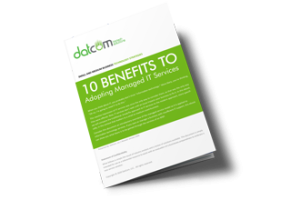The Vitality and Vulnerability of Business Data
This week on the DatCom Business Briefing, we discuss the importance of Data for Business. Read on for an overview of Data Analysis and Data Security, especially as it relates to the holidays.
Data Analysis
Is your business data-driven?
Most people think about major corporations when they hear about “data-driven business.” After all, small businesses don’t generate that much data, do they?
Small businesses generate a ton of useful data if they embrace the right tools.

Any company that has a website, an email list, digital advertising, CRM software, and a social media presence can be “data-driven.” But they must have good practices for data analysis and data security.
Data analysis is a scientific discipline requiring a step-by-step process. Some readers might find that a bit intimidating. Don’t. It’s easy to understand data analytics from 30 thousand feet. This is an overview, not an in-depth how-to.
Data analysis is a process of gathering and examining information in order to draw conclusions and make informed decisions.
The five steps of data analysis are:
- Defining a Question: This is the first step of data analysis, as you need to identify the question you are analyzing. This will help you determine what data to collect and how to interpret it.
- Collecting Data: Once you have identified the question you are asking, the next step is to gather the data that will help you answer it. Depending on the question and the type of data you are collecting, the data collection process can vary. Understand that some data is primary, or generated by your business. Know that some data is secondary, or generated by other businesses.
- Cleaning Data: Once you have the data, it is important to clean it up. This means removing any unnecessary or invalid data, as well as checking for errors and inconsistencies. This will ensure that the data you are analyzing is as accurate as possible.
- Analyzing Data: After the data is cleaned and ready to go, the next step is to analyze it. This is where you use tools such as statistical analysis, machine learning, or other methods to discover patterns, trends, and correlations in the data that can help you answer your question.
- Results: The final step of data analysis is to report the results. This can be done in a variety of ways, such as creating charts and graphs, writing reports, or presenting data in a visual format. The goal is to make the results as easy to understand and interpret as possible.

Data Security
Data security is increasingly important for businesses in the digital age. With the escalation of cybersecurity threats, it is crucial to understand the importance of protecting data and the consequences of not doing so.
We can’t say it enough: Small and medium businesses are no exception when it comes to vulnerability. In fact, 47% of small businesses experience a cyber attack each year.
Now, consider these other stats:
- 70% of small businesses are unprepared to deal with a cyber-attack.
- 3 out of 4 small businesses say they don’t have sufficient personnel to address IT security.
- 66% of small businesses are very concerned about cyber security risks.
- 51% of small businesses say they are not allocating any budget to cybersecurity
- 34% of businesses hit with malware took a week or more to regain access to their data.
Data is a valuable asset, and data security should be a top priority for small businesses. Data security helps protect against unauthorized access to confidential information, such as customer data, employee data, proprietary information, and financial records. Without proper security measures in place, this data can be accessed, stolen, and used for malicious purposes. In addition, data breaches can cause reputational damage, financial losses, and legal ramifications.
The most effective way to protect data is to implement robust cybersecurity measures. These measures include encrypting data, using strong passwords, and limiting access to sensitive information. Organizations should also regularly check for vulnerabilities and update their software to the latest version. Additionally, training is essential for employees to understand the importance of data security and how to effectively protect company data.

Holiday Hackers
But these things are easy to overlook when you’re strapped for time, and hackers are counting on it. For example, have you noticed how active scammers are during the holidays? People are hustling and bustling to buy gifts and finish work for the year. It makes sense for scammers to be active.
Research shows that the same can be said for cyber-attacks. People are making more impulse purchases and networks are strained, so it’s easier for hackers to get your precious data.

That’s why it’s so important to seek experts who can deliver results that are aligned with your business goals. As technology professionals, we understand that tech heads can get lost in the weeds.
As a principle, we discipline ourselves to remain efficient. Just because a technology solution is fancy, doesn’t mean it’s valuable for our clients.
Data Security is Critical for Business Continuity
Data security is an essential component of business continuity. If you operate a brick-and-mortar office, you know how devastating a natural disaster can be to your operations.
A fire. A flood. A long-term power outage.
Business owners must ensure that backup data is stored securely and regularly updated. This can help minimize the damage caused by natural disasters or cyber attacks and help ensure that data is not lost.

However, not all backup solutions are equal. We won’t bore you with the details, but suffice it to say that it took a lot of hard work to secure a backup solution that lives up to our high standards.
Why can’t business leaders understand the danger until after they’ve suffered?
We’re always amazed when we see that yet another company has been held hostage by ransomware because they weren’t prepared. Businesses will spend thousands of dollars fixing a piece of broken equipment, but won’t spend the money on redundant data backup that can save their company.
For more helpful information on backup and business continuity, look here.


